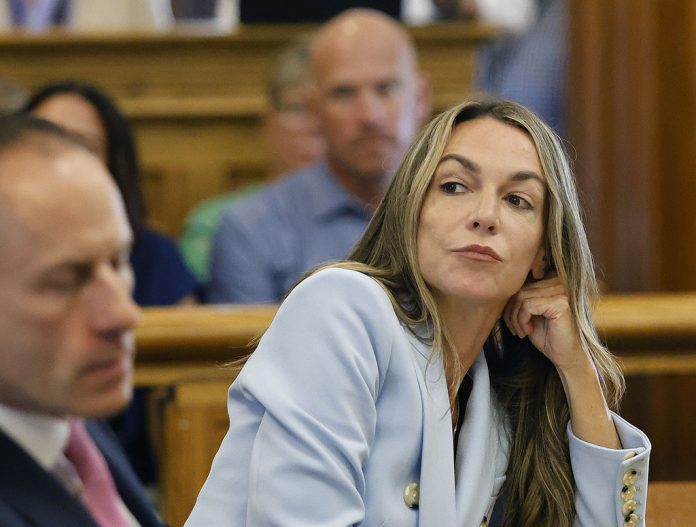BOSTON (AP) — Karen Read’s months-long murder case left her in “purgatory” and ”stressed every day,” she said in an interview set to air Friday night.
Read, 44, is accused of ramming into her Boston police officer boyfriend John O’Keefe with her SUV and leaving him for dead in a January 2022 snowstorm. Her two-month trial ended in July when jurors declared they were hopelessly deadlocked and a judge declared a mistrial on the fifth day of deliberations.
“This is no life. I’m not in prison, but this is no life. I’m stressed every day. I’m waiting for the next shoe to drop,” Read said in her interview on ABC’s “20/20” ahead of her trial. “It just feels like a kind of purgatory.”
Last month, Judge Beverly Cannone rejected a defense motion to dismiss several charges, meaning the case can move forward to a new trial set to begin Jan. 27, 2025.
Prosecutors said Read, a former adjunct professor at Bentley College, and O’Keefe, a 16-year member of the Boston police, had been drinking heavily before she dropped him off at a party at the home of Brian Albert, a fellow Boston officer. They said she hit him with her SUV before driving away. An autopsy found O’Keefe died of hypothermia and blunt force trauma.
Read told ABC News that she felt an “immense sense of dread” as she searched for O’Keefe. She acknowledged having four drinks that night — some of which she didn’t finish — but that she felt fine to drive.
“I was worried he might’ve gotten hit by a plow. That was my first thought,” Read said. “It was the only explanation I could think of for why John disappeared in thin air.”
The defense portrayed Read as the victim, saying O’Keefe was actually killed inside Albert’s home and then dragged outside. They argued investigators focused on Read because she was a “convenient outsider” who saved them from having to consider law enforcement officers as suspects.
After the mistrial, Read’s lawyers presented evidence that four jurors had said they were actually deadlocked only on a third count of manslaughter, and that inside the jury room, they had unanimously agreed that Read was innocent of second-degree murder and leaving the scene of a deadly accident. One juror told them that “no one thought she hit him on purpose,” her lawyers argued.
The defense also said the judge abruptly announced the mistrial in court without first asking each juror to confirm their conclusions about each count. Read’s attorney Marty Weinberg had asked Cannone to consider summoning the jurors back to court for more questions.
But the judge said the jurors didn’t tell the court during their deliberations that they had reached a verdict on any of the counts.
“Where there was no verdict announced in open court here, retrial of the defendant does not violate the principle of double jeopardy,” Cannone said in her ruling.
Prosecutors had urged the judge to dismiss what they called an “unsubstantiated but sensational post-trial claim” based on “hearsay, conjecture and legally inappropriate reliance as to the substance of jury deliberations.”
Source: post





